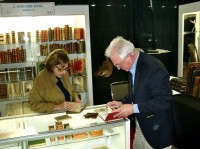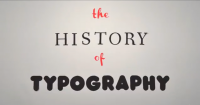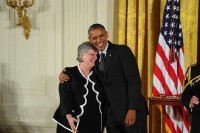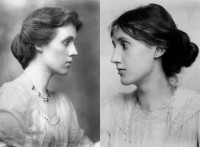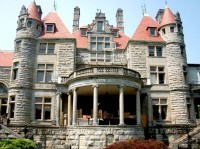Ernest Wessen's letters are a must for aspiring Americana dealers In his memoir, The Adventures of a Treasure Hunter my idol, Charlie Everitt, refers to his wife as “Mrs. Everitt.” I like the old fashioned formality of that address. Same with Ernest Wessen, the great Midwestern Americanist and author of the legendary series of catalogs called Midland Notes: “Mrs. Wessen and I were returning from a visit to the folks in Maine...” etc. I would very much like to tell you about the trip Mrs. Gibson and I took recently, but when we married she kept her (Irish) family name – Crotty – and I just don't think “Ms. Crotty and I” comes across with the same archaic charm. So anyway, the wife and me, we went down to Baltimore last week. Papermania had been canceled. We had a little time on our hands, so we visited friends in Pennsylvania on Wednesday, and drove down Thursday for the opening of the Baltimore Summer Antique Show. The Baltimore Summer Antique Show still packs 'em in This used to be a sort of funky affair – diverse, rambling, and slapdash. An Irish guy named Frank was the front man. He'd get on the PA just before the show opened and give endless instructional speeches about what was expected of the dealers, unintelligible owing to the poor sound quality and his Irish brogue. Book sellers were included as an afterthought, but the combination worked. We found things to buy from the antiques people, and new customers were exposed to our wares. The show had a g... [more The Wife and Me]
Forrest Media, a Canadian graphic design and media production company, put together a nice animated short on the history of typography. [more Animated Short on the History of Typography]
Facebook 101 Let's start with a little statistic: Facebook has over 1 billion active users; Earth has about 7 billion users by last count. Now, I know book dealers are not always known for their math skills, but I'm pretty sure that works out to about 1 in 7 people ON THE PLANET who use this particular social network. But don't let the numbers intimidate you. Facebook is as much about fostering smaller communities as it is reaching a wider, even global, audience. But in order to create a sustainable and effective presence on Facebook, it is important to start modestly, set realistic goals, and focus on creating good content and a strong “brand” from the outset. To get you started on the right foot, this week's post will offer some thoughts about how to develop your page and cultivate followers. I won't be going over the step-by-step instructions to setting up an account - there are many resources out there that can give you clearer instructions than I ever could. These links topped the list in my Google search: http://www.socialmediaexaminer.com/how-to-set-up-a-facebook-page-for-business/ http://blog.hubspot.com/marketing/how-to-create-facebook-business-page-ht The above articles will tell you that creating a business page is much easier and has some added benefits if you already have a personal account. Not only will the features be more familiar to you, but you will also have a group of friends that you can encourage to like your business page as you are getting started... [more THE SAVVY BOOKSELLER: Social Media for the Antiquarian Book Trade, Post #3]
The American Antiquarian Society was recently awarded the National Humanities Medal. We caught up with the Society's director, Ellen S. Dunlap, to hear all about it. Founded in 1812, the Society houses American books, broadsides, newspapers, graphics, and ephemera from first contact through 1876, and more selectively in manuscript collections. The award was given “for safeguarding the American story. Through more than two centuries, the Society has amassed an unparalleled collection of historic American documents, served as a research center to scholars and students alike, and connected generations of Americans to their cultural heritage.” Ellen and her colleague Matthew Shakespeare were returning from a business trip when she received a call from the NEH's acting director offering the award. The nomination process is somewhat secret, but usually is a collaboration between the NEH and the White House. Though Ellen was unaware that AAS was on the short-list, the organization has received NEH grants on numerous occasions and more than forty previous medal recipients were or are currently elected members of AAS. Ellen accepted on behalf of the Society and two weeks later was en route to the ceremony in Washington, DC with Bill Reese and Sid Lapidus in tow. They rubbed elbows with noteworthy folks like actor Morgan Freeman, singer Linda Ronstadt, literary critic M.H. Abrams, writer Julia Alvarez, and talk-radio host Diane Rehm. A full list of winners is here. She even got to ... [more American Antiquarian Society Receives National Humanities Medal]
This item is still missing as of 6/2/2019. An Alphabeticon : encyclopedia for the use of the lettered and unlettered. Edition C- 16 volume set of the Analphabeticon; Assembled by George Brecht and Rudolf Rieser in a random order using images sent in by artists like John Cage, Diter Rot, Jasper Johns, Wolf Vostell, Emmet Williams, and various fluxus artists.; Title from paper band on book cover. With color silkscreens on Japanese paper with Vellum covers. Editon of 28 copies only. Please contact Elayna Zucker, if offered at ez@zuckerartbooks.com. [more Missing: An Alphabeticon]
When I began selling rare books as a career, I specialized in English literature. More specifically, I specialized in Virginia Woolf and the eccentric writers, artists, and bohemians that made up her inner circle, the Bloomsbury Group. Mrs. Dalloway is, after all, my favorite book, and I dreamed of one day coming across a special association piece- perhaps something owned by a Bloomsbury group member, or a book from Virginia's own library. This dream came to fruition last fall, when I was able to purchase ten books from the library of Vanessa Bell, Virginia Woolf's sister. They came by way of Bell's two surviving granddaughters. Of association material, these are significant not just for familial and personal value, but also for literary value: Vanessa, Virginia's only sister and confidante, was also her chief dust jacket designer. This very special material lends value for research, giving us a glimpse into how these writers and artists lived, and additionally, how their books lived. How were their books regarded? Are they well-preserved, or worn to shreds? Are they dog-eared and full of marginalia, or barely touched? In the case of these ten books, I've been half-jokingly calling them “artist's copies,” because most of them are rather worn and damaged, with tattered dust jackets if the jackets had been preserved at all. But if pieces of the dust jackets did survive, interestingly enough, the portions that bore Vanessa's designs were the parts that were preserved. Three ... [more The Intrinsic Value of Association Material]
Choices, choices. If you are reading this, that means I didn't scare you off too badly with my last post about the wonderful world of social media. Huzzah! Gold stars all around! Now that we've dispelled some of the myths surrounding social media, there is the little matter of paring down the incredible number of networks out there into a manageable set from which to get started. As I mentioned in my last post, I am of the belief that it is more important to be active on a few well-chosen social media platforms than do a mediocre job on a wide range. So depending on your specialties, interests, and the amount of time you want to devote, some sites will serve you better than others. You know your business better than anyone, so the choice ultimately must be yours. This post will focus on the top five most popular social networking sites (all of which are FREE and open to anyone) and discuss some of their pros and cons as they relate to the rare book trade. Side note to ABAA members: you also have the option of linking all of the following platforms (with the exception of LinkedIn) to your ABAA profile at abaa.org to give you even more exposure and opportunities to connect. 1. Facebook: The granddaddy of social media sites. Although there were social networks that came before it, Facebook has stayed relevant over the years and is now the single most popular social network on the Internet. Originally it was only available to university students but now anyone can join, and there... [more THE SAVVY BOOKSELLER: Social Media for the Antiquarian Book Trade, Post #2]
I'm writing from the magnificent pile of stone and anguish known as Chapter 11 Books, situated between a Jiffy Lube and a drive-thru mortuary, and patronized primarily by people who'll have to come back when they've got more time. At the moment I'm wondering how one retires from a trade that most people take up after they retire. No answers are forthcoming. It's beginning to look as if I'll die with my books on. The dream ends. I wake to find myself in a slightly too comfortable chair at the edge of my booth at the Twenty-Fourth, or Twenty-Fifth, or Twenty-Sixth Annual Antiquarian Book Fair at John Dewey Academy, in Searles Castle, Great Barrington, Massachusetts. It's been a slow day, but days at this show are always slow. People drift in and out - polo shirted upper middle class people with frighteningly well behaved children, men in pink shorts, a lady with a Service Dog in a baby carriage. These folks are on vacation, and they've got all the time in the world. They poke around, consult one another, amble off, return, ask questions. They seem to be intelligent, sophisticated people. They're here in the Berkshires from places like Boston and New York, for the Tanglewood Music Festival or to visit the area's many galleries and museums, and we entertain their questions because, occasionally, a question will lead to a purchase. Often the question is, “Can you do any better on the price?” If you say it right, I suppose, it sounds intelligent and sophisticated. Because every... [more A Little History]
This item is still missing as of 5/28/2019. The following item was stolen in Cambridge, MA on 7/28/14: Bocher, Emmanuel. Le Macramé. Technique, Modèles divers, Procédés d'exécution. Paris, Librairie Damascène Morgand, 1919. 441 pp. B./w. ills. Soft cover. Folio. (Manuel des Travaux à L'Aiguille V). *Very rare. If you are offered this item or have any information regarding the book, please contact Nancy Stieber at nancy.stieber@umb.edu or (617) 547-0977. [more Stolen: ‘Le Macramé. Technique, Modèles divers, Procédés d’exécution.’]
In a few days I'll be heading out to Colorado Springs for my fifth tour of duty on the faculty of the Colorado Antiquarian Book Seminar. Hard as it is for me to believe that five years have passed since my first visit to CABS, as a guest lecturer in 2010, harder still must it be for those who were involved with it from the start — wonderful dealers like Ed Glaser and Mike Ginsberg — to realize that CABS has now been a continuously-running institution for almost forty years. In the interim enormous changes have taken place in the book trade, and some pretty big ones have taken place within the seminar, too. But one thing certainly hasn't changed, and that is the Seminar's central mission of providing booksellers, collectors, and librarians of all levels of experience with the most in-depth, intensive introduction to the antiquarian book trade that is currently available. I wrote passionately about my belief in the seminar on my own blog a couple of years ago. I still believe, as I did then, that this week in Colorado is among the best and most exciting things I do in the world of books. The opportunity to open new dealers' eyes to the enormous and ever-expanding range of possibilities this business has to offer is hugely gratifying, and each year I leave the seminar feeling better-informed, re-energized and re-committed to my own business. I also leave tired: it's the most exhausting week of my year, harder even than New York Book Fair week (and that's saying something!), ... [more What My Friends Think I Do: Part III In A Series]


